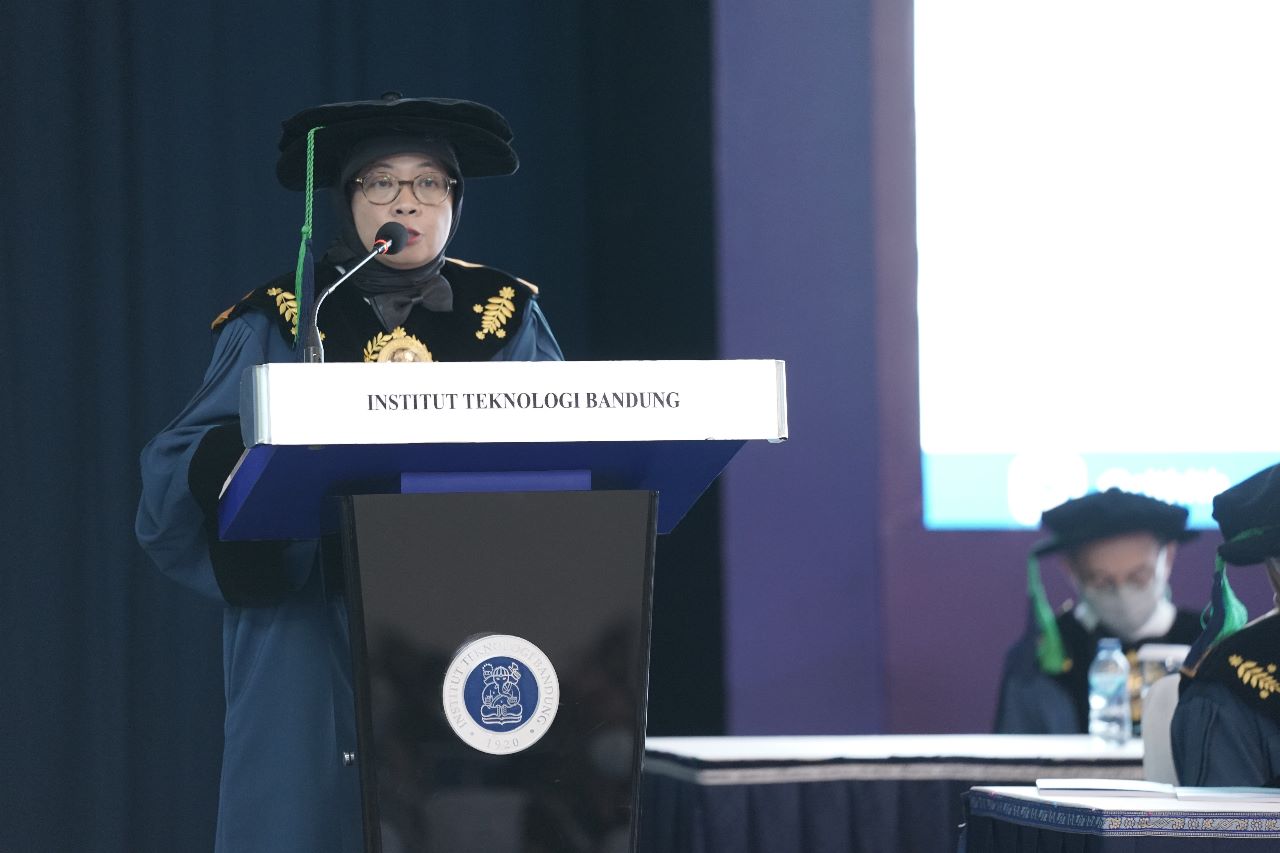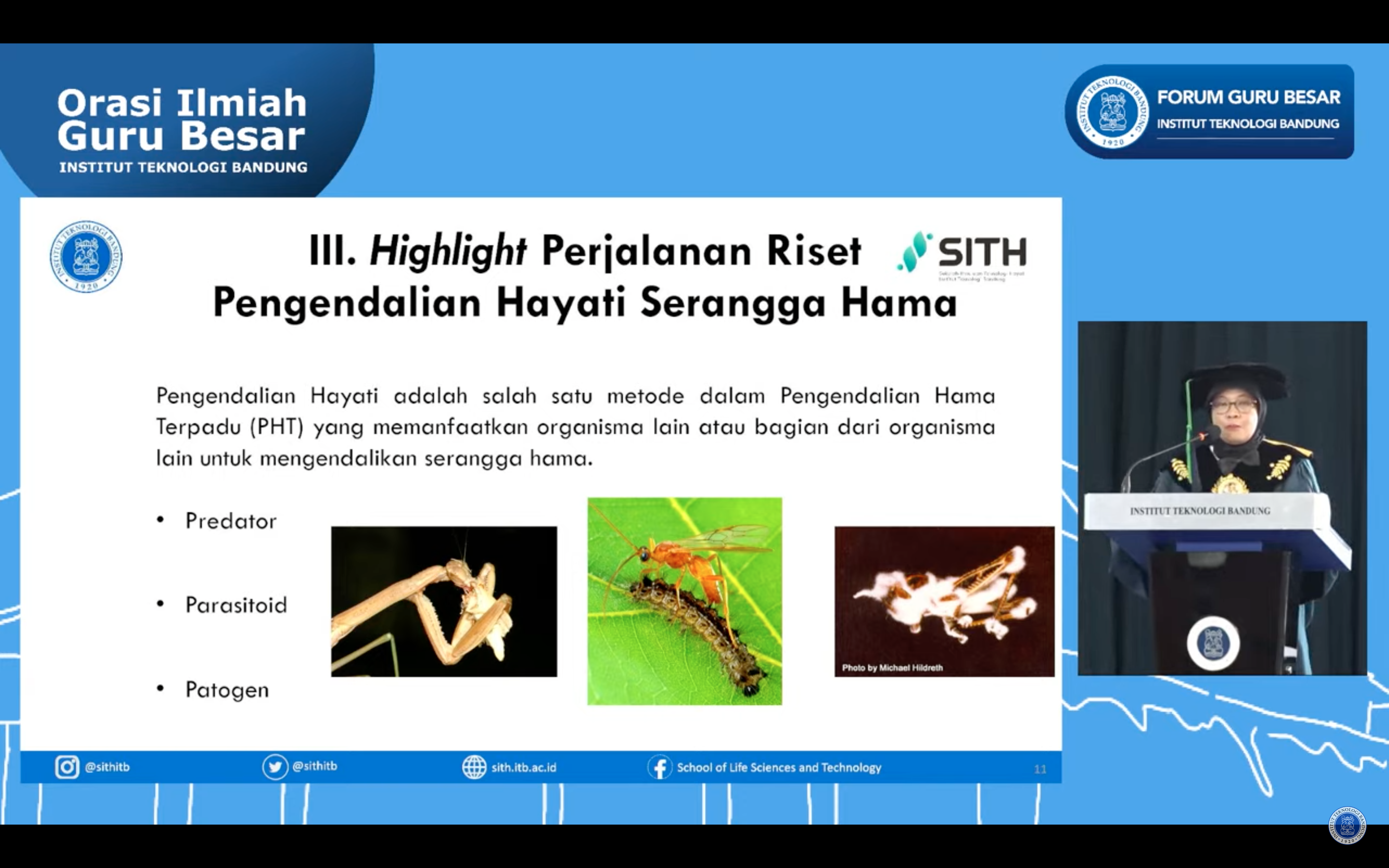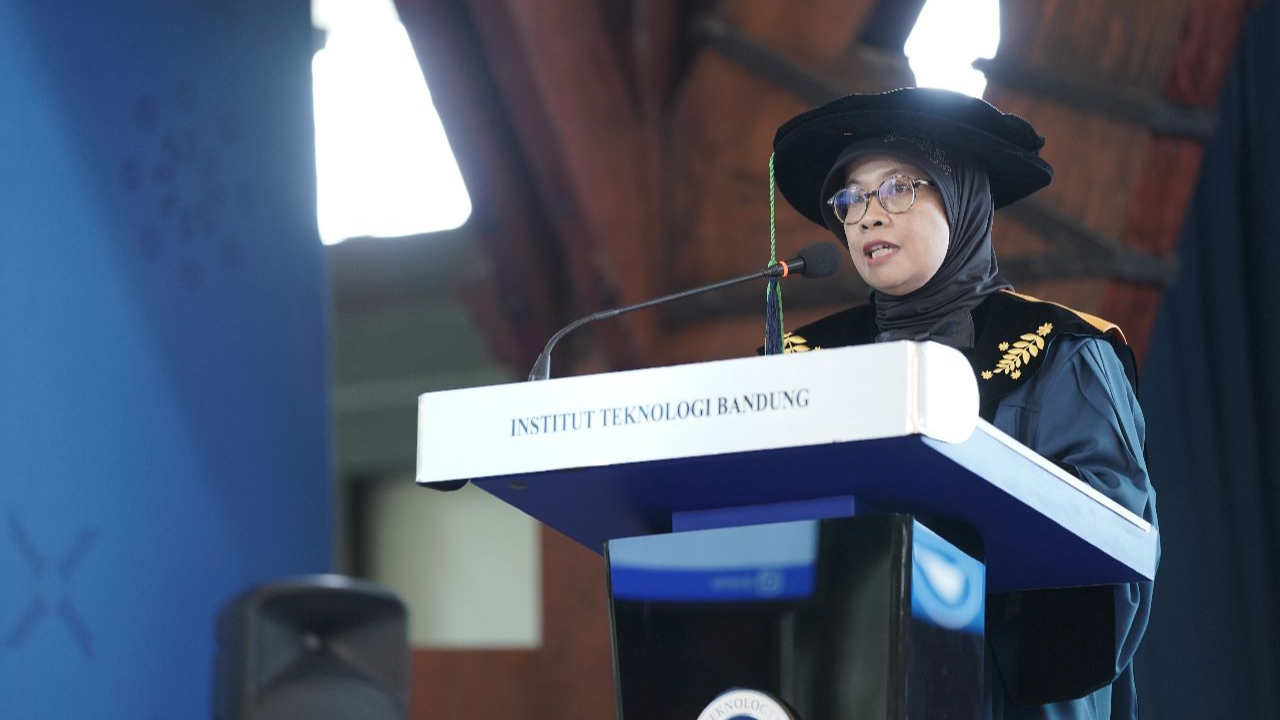Insects are surprisingly the most dominant organism in the world. In modern days, Its existence is expected to reach 10 quintillions (Qi)
Insects have been labeled as a pest since the early 20th century and further drove the invention of DDT in 1944. However, in 1960, Rachel Carlson unveiled the hazardous impact of DDT usage through her book titled “Silent Spring.”
“The publish of this book continued to be a human concern until the prohibition of DDT usage a few years later,” said Professor Tjandra Anggraeni when delivering her speech entitled “Controlling Pest by The Biological Measure” in the Professor Forum of ITB held in the west hall on Saturday (19/10/2022).

The scientific speech of Prof. Tjandra, who is also the Acting Vice Dean of Academic of SBM ITB, was about the impact of biological agents on the immune system of insects and the insects’ physiological aspect. In this research, Professor Tjandra used mould as the agent. As a result, insects can die because their internal body is destructed by the mould invasion or the mould toxin deposit.
According to Tjandra, pest biological control is needed as there is new problems in this field Those are pest resistance, the burst of secondary pests, and the pollution resulting in some human diseases.
Biological control is a part of pest control excellence (PCE), one best solutions offered nowadays. Besides the biological control, PCE also consisted of cultural, physic, and chemical control with light doses of insecticide only if the desired result is not achieved.
“Insects will keep evolving so that there are at least 30 ordo of insects by now, and will keep increasing. The number of the species on each ordo also varies,” added her.
Tjandra emphasized the importance of PCE, the understanding of insects’ immune systems, and also the opportunity for variance due to the diversity of species for both the biological agents and the insects that occur daily. Tjandra relies her hope on human wisdom for pest control based on the PCE principle.





